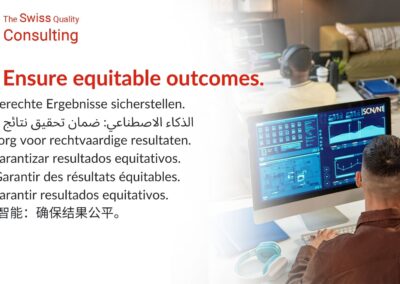Economic Inequality: A Fading Promise?
In the realm of business and leadership, the age-old belief that hard work and adherence to the rules guarantee a comfortable present and a prosperous future is facing unprecedented challenges. The quote captures the prevailing sentiment that this promise is under assault from various quarters, with economic inequality emerging as a formidable adversary to the ideals of democratic capitalism. In this article, we explore the multifaceted issue of economic inequality and propose strategies for business leaders, executives, and entrepreneurs to contribute to a more equitable future.
The Reality of Economic Inequality
This is not a call for empty pronouncements or Band-Aid solutions. It is a clarion cry for a fundamental reshaping of the economic game board, a dismantling of the rigged tables and the creation of a level playing field where merit, not pedigree, dictates the dance of success. It demands a bold embrace of policies that champion fair compensation, foster inclusive growth, and ensure that the tide of prosperity laps at the shores of every life, not just those bathed in the glow of privilege.
The tools for this transformation lie within the grasp of these visionary leaders. Living wages, a commitment to diversity and inclusion, and ethical supply chain practices are not mere corporate platitudes; they are the bricks and mortar of a more equitable future. Championing wealth redistribution, investing in community development, and fostering collaborative partnerships with social actors – these are not the whispers of bleeding-heart charity, but the roar of a collective engine driving towards a sustainable, just society.
The rewards of embracing this mantle of leadership extend far beyond mere moral imperatives. By actively addressing inequality, businesses sow the seeds of a more stable, productive social environment, one where talent flourishes regardless of its zip code. Consumer markets, fueled by a wider distribution of wealth, swell with potential, rewarding businesses with increased demand and vibrant growth. Innovation, born from the diverse tapestry of a truly empowered populace, bursts forth in a torrent of groundbreaking solutions, propelling businesses to the forefront of the global marketplace.
This is not a call for handouts, but for a fundamental shift in the economic paradigm, a dismantling of the gilded cages that stifle potential and a creation of an ecosystem where every individual, every community, has the space to soar. Business leaders, by stepping out of the shadows and into the sunlight of societal transformation, not only fulfill their moral obligation, but ensure the long-term health and prosperity of the very systems that fuel their success.
Strategies for Business Leaders to Combat Economic Inequality
1. Embrace Inclusive Business Practices
Inclusivity should be at the core of business strategies. Leaders must actively promote diversity within their organizations, ensuring that opportunities are accessible to individuals from all backgrounds. Embracing a diverse workforce not only fosters innovation but also contributes to a more equitable distribution of economic benefits.
2. Implement Fair Compensation Policies
Examining and rectifying wage gaps within organizations is a crucial step. Business leaders should champion fair compensation policies that ensure employees are remunerated based on merit, irrespective of gender, race, or socio-economic background. This commitment to pay equity sends a powerful message about the organization’s dedication to combating economic inequality.
Empowering Future Generations: A Commitment to Change
1. Invest in Education and Skill Development
Education is a powerful tool for breaking the cycle of economic inequality. Business leaders can contribute by investing in educational initiatives and skill development programs. By providing opportunities for learning and growth, organizations empower individuals to enhance their economic prospects and contribute meaningfully to society.
2. Support Community Initiatives
Businesses play a vital role in the communities they operate in. Supporting local initiatives, particularly those focused on economic empowerment, can have a significant impact. Whether through mentorship programs, scholarship opportunities, or partnerships with community organizations, businesses can contribute to creating a more level playing field.
Navigating Economic Challenges: A Call to Action
1. Advocacy for Policy Changes
Business leaders possess influential voices that can be used to advocate for policy changes that address economic inequality. Engaging with policymakers, participating in public discourse, and supporting legislative measures aimed at creating a fair economic environment are responsibilities that come with leadership.
2. Foster Ethical Business Practices
Ethical business practices are fundamental to addressing economic inequality. Leaders should prioritize transparency, fairness, and social responsibility in their organizations. By setting high ethical standards, businesses contribute to building trust and creating a business environment that values the well-being of all stakeholders.
Conclusion: A Collective Responsibility
The fight against economic inequality is a collective responsibility that extends beyond individual businesses. As leaders in the business world, executives, mid-level managers, and entrepreneurs must recognize their roles as agents of change. By implementing inclusive business practices, supporting education, advocating for policy changes, and fostering ethical conduct, they can contribute to a more equitable future—a future where the promise of hard work and adherence to rules is a reality for all.
#EconomicInequality #InclusiveBusiness #SocialResponsibility























